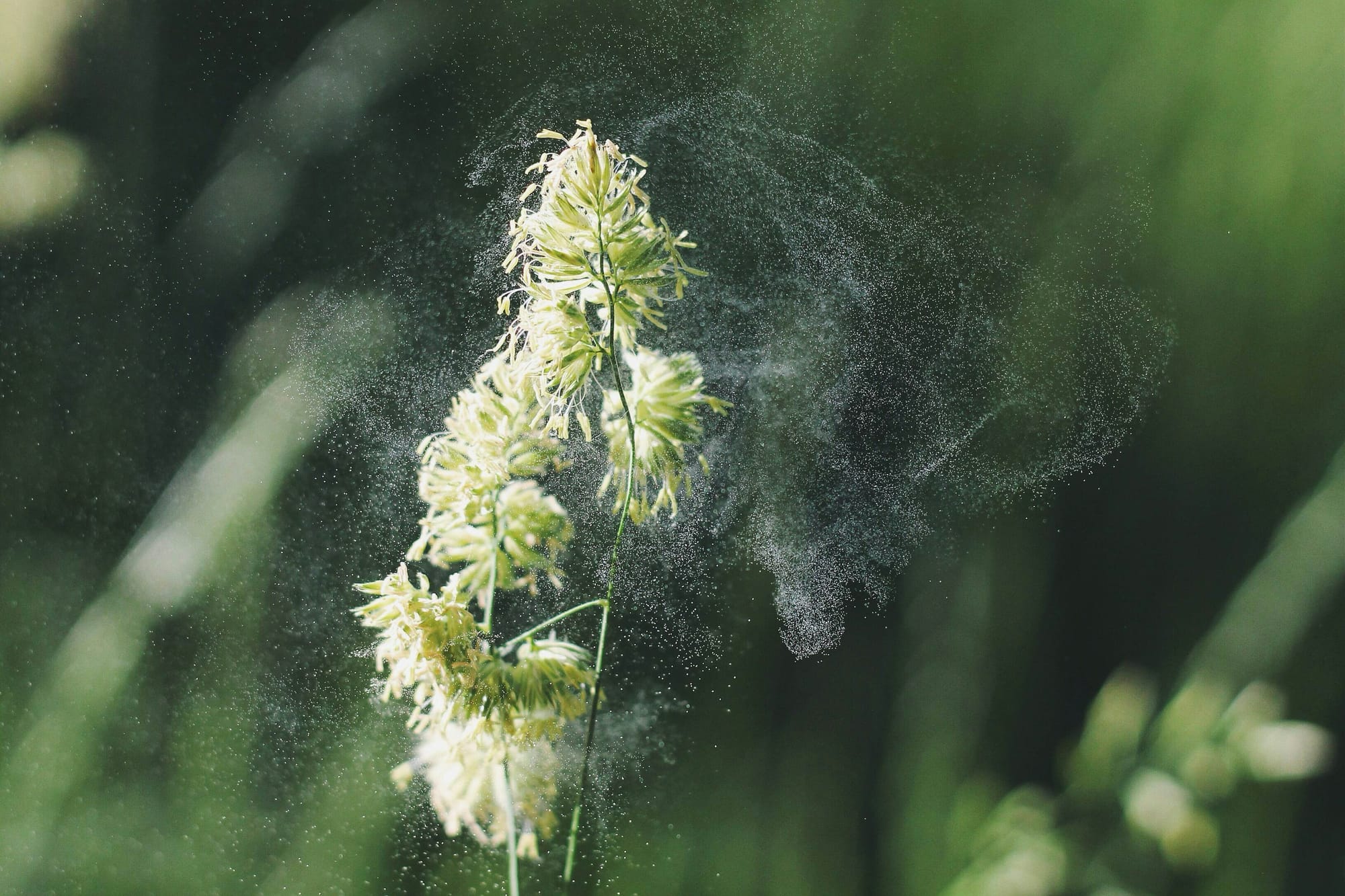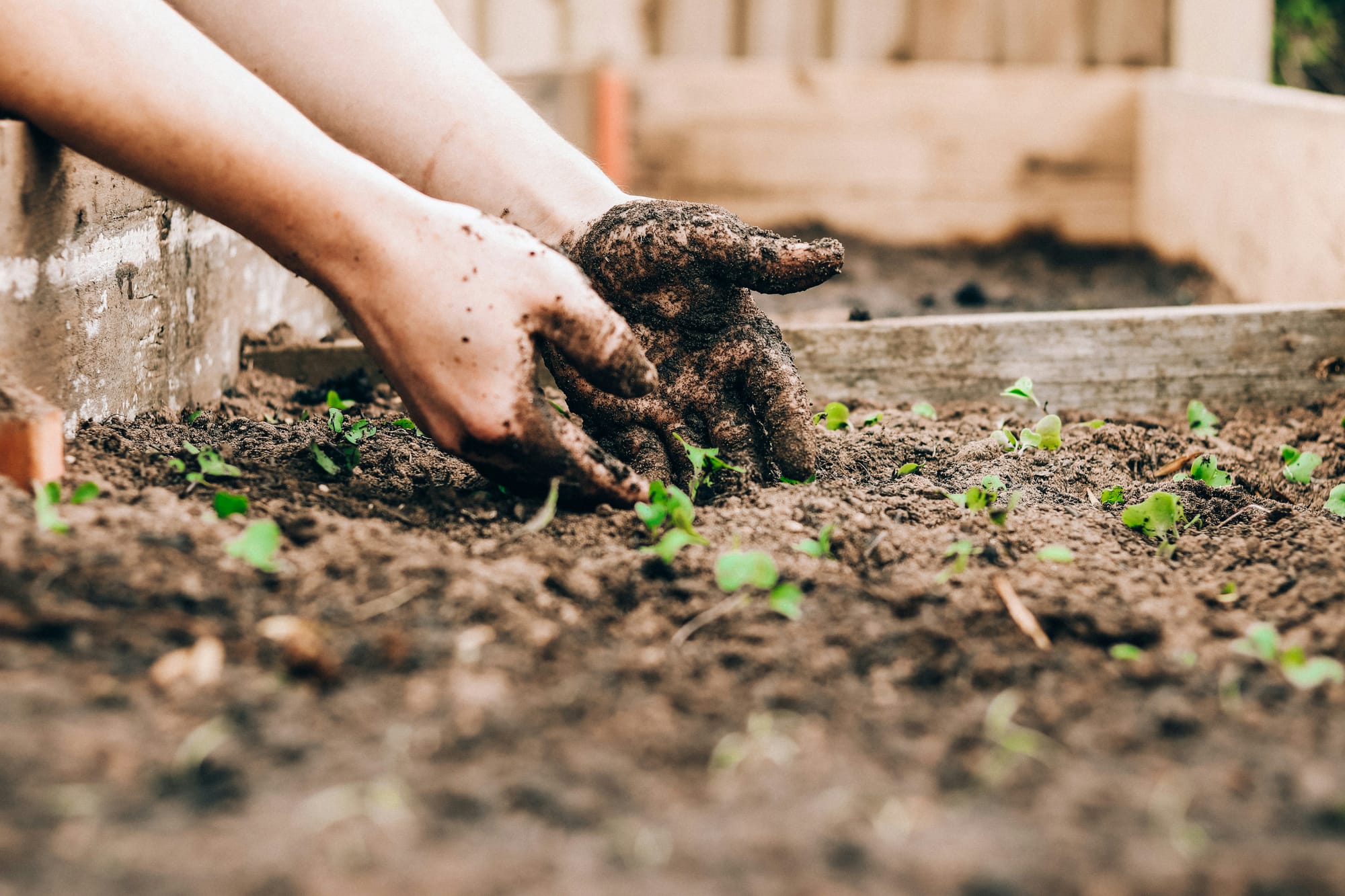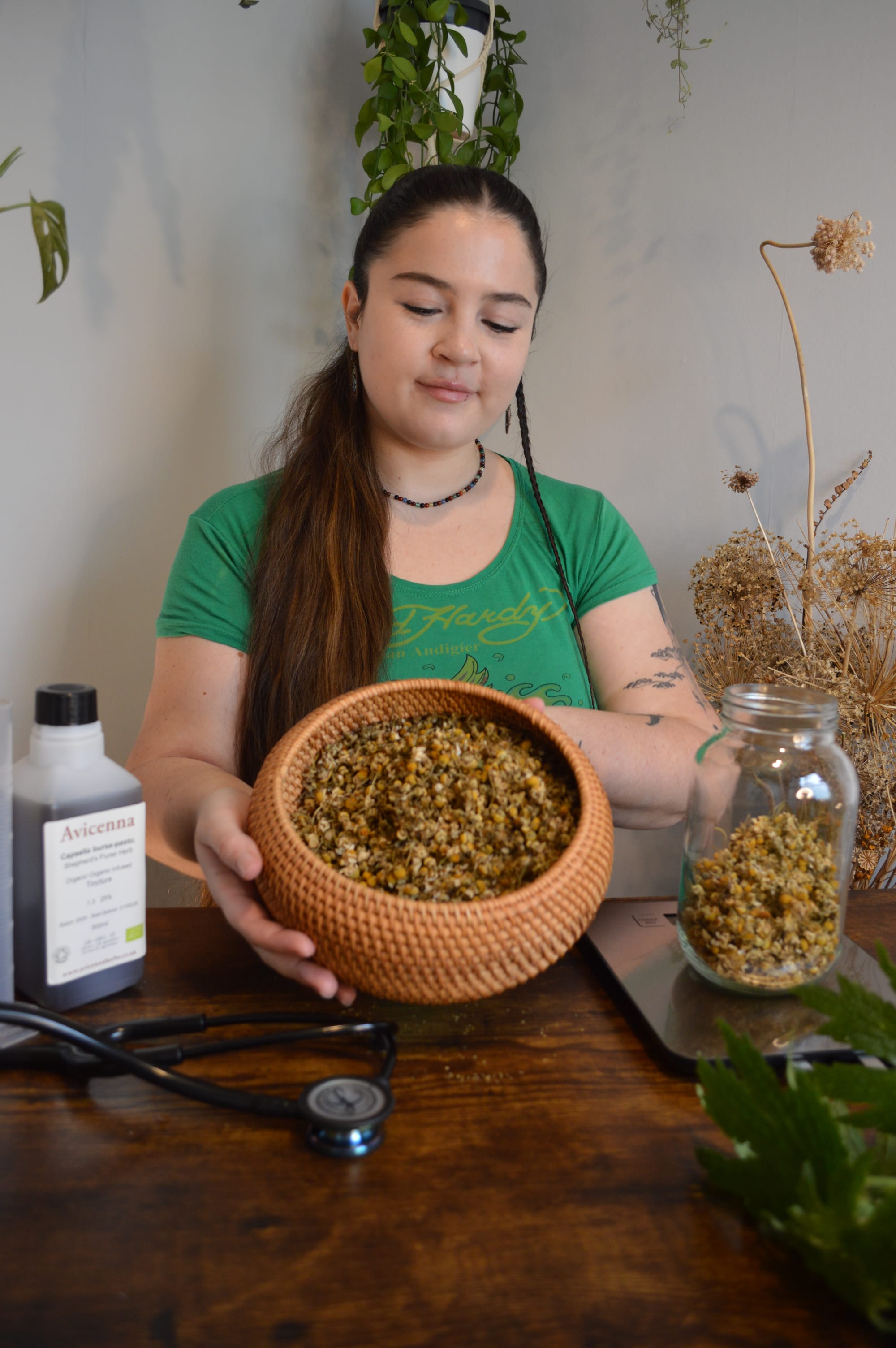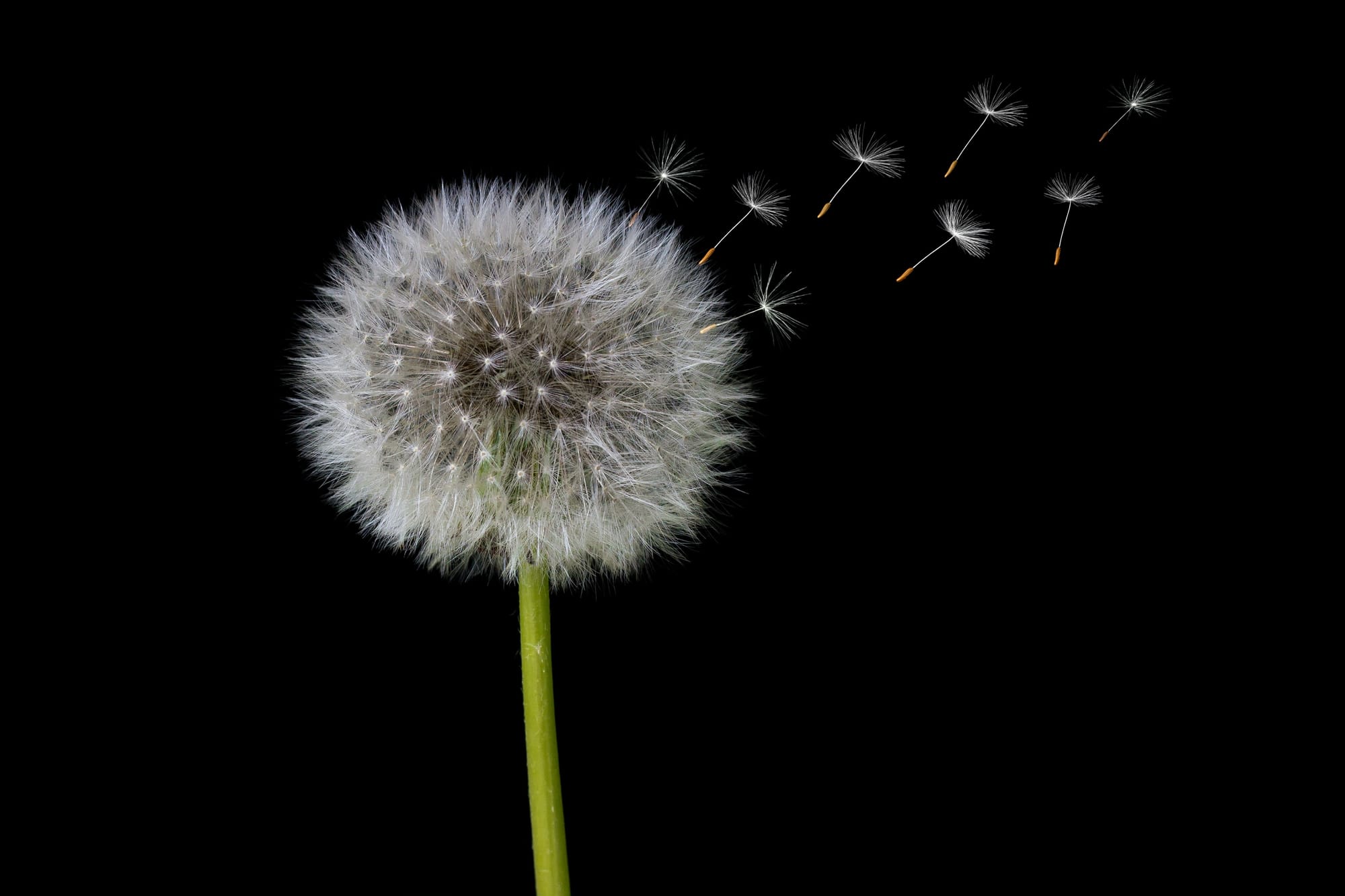Hayfever - A Medical Herbalist Approach
For April, Medical Herbalist Esme Greenway NIMH looks at ways to calm, prepare and prevent uncomfortable episodes of hayfever and seasonal allergies by nurturing natural immunity. Learn how to utilise the healing powers of nettles, local honey, dandelion roots, gardening, gut-loving foods and getting in touch with the soil to make your immune system less reactive. Let's all go foraging, get out into the garden or allotment and revel in the soil for happy, healthy immune systems! I hope you enjoy the article and find it fascinating, informative and beneficial. Alison Jane, Editor-in-Chief.

INTRO As Winter turns to Spring, the delight of sunshine and trees bursting into bloom conflict with the misery and frustration of itchy eyes, sneezing and runny noses for many of us. The hayfever season is upon us. The pollen from our gorgeous Spring plants, trees and flowers can trigger an uncomfortable and debilitating immune response as the water-soluble proteins generated by pollen can infiltrate the mucous membranes of the mouth, nose, and eyes. This causes pollen to be mistaken for pathogens by your immune system.
The Problems with Pollen
Historically, certain pollens were likely dangerous to us, so this immune response would have come in handy. The vast majority of us who have allergies in the modern world suggest it likely was beneficial enough to stay within the gene pool! In early Spring, tree pollen is often to blame, whereas grass pollen causes the majority of symptoms in late Spring and Summer, followed by ragweed which attacks during early Autumn.
Is it Time to Get Dirty and in Touch with the Soil?

Typically, hayfever is a consequence of an overactive immune system. There are many studies suggesting that allergies are increasing, especially in developed countries. Some theories for this include the hygiene hypothesis, where we are exposed more to an antibacterial world, and less to dirt and microbes from our natural environment to build strong immune systems. Another is that chemicals in products and pesticides break down our gut-lining, and cause a leaky gut, which amongst other things can cause heightened immune system activity.
The Problem with Histamine
Immunoglobulin E producing antibodies appear specifically to stimulate the release of histamine, in an immune response to potential pathogens. Histamine is a substance that irritates your tissues and causes your runny nose. It functions as an inflammatory mediator, which is incredibly important for increasing blood flow to wounds, producing stomach acid and keeping our brain awake. This is why common antihistamines can cause some unwanted side effects, particularly fatigue.
Hayfever Herbal Heroes

Nutritious, Anti-inflammatory Nettles
For this reason, I’d like to introduce you to some helpful herbal plant heroes that I’ve seen work wonders in my practice for seasonal allergies.
Nettle is perfect for picking during Spring, as the leaves are young, potent and fresh. Nettle reduces inflammation in the body by reducing the amount of histamine released. Nettle is also an incredibly nutritious and versatile herb, delicious in teas and soups. Stay stocked for the year by freezing your foraged, blanched nettles.
Dandelions for Liver Support

Dandelion for Liver Support
An increase in chemical toxins means we need to support our liver to cleanse the blood of them. This will in turn help our immune system regulate, as it won’t need to be constantly ready for a war on allergens. Dandelion roots provide powerful liver support, and the leaves support the kidneys to flush out excess histamine. Top tip: harvesting dandelion roots in the Spring is when they are most nutritious, as they store their vitamins and minerals safely in the roots over winter, so harvest before you see the flowers if possible!
Calming Camomile
Quercetin rich herbs, such as ginkgo and chamomile, can help to reduce sinus inflammation and congestion. Chamomile also supports our nervous system which can keep us calm and feel less stressed. This is useful as high cortisol levels impacts our immune system.
Choose Gut Loving Foods
Holistic medicine teaches us that prevention is better than cure. Incorporating lifestyle changes throughout the year will help to reduce allergy symptoms when the hayfever season arrives. Eating local honey might improve your allergy symptoms if it contains pollen and is eaten consistently, at minimum honey is soothing for itchy or dry throats. Stocking up on gut-friendly foods during hayfever season will improve the gut, specifically look out for Lactobacillus acidophilus-containing foods. And even snacking on the humble orange will support our immune systems due to vitamin C having gentle antihistamine properties. Drinking herbal teas as mentioned previously on a regular basis can improve our immune response and regulate a hyperactive immune system.
Are You Too Clean?
The hygiene hypothesis suggests that we can boost our immune systems by exposing ourselves to soil by foraging and gardening (if your allergies can handle it). To help your immune system out on particularly sniffly days, try to avoid exposure if it is hot and windy, as pollen is spread more easily. Closing windows during the day and covering eyes with glasses can also prevent pollen irritation.
By Esme Greenway, BSc, MNIMH
www.medifolia.com
Disclaimer. Consult with a qualified healthcare professional for advice regarding treatment for allergies. This article does not intend to replace advice from your functional doctor or chosen trusted healthcare professional.
Medical Herbalist Esme Greenway runs a vibrant practice in North London. I met Esme on a Rebel online business bootcamp course. Esme is a member of The National Institute of Medical Herbalists and her career has been guided and nurtured by The Princes Trust.
Written by Contributing Medical Herbalist Esme Greenway. Editing and Layout by Editor-in-Chief Alison Jane Reid.
Copyright Alison Jane Reid/Esme Greenaway/ The Luminaries Magazine April 2024. All Rights Reserved. No copying in any format whatsoever.
Support Us
We Need More Readers to Pay for Independent Journalism
The Luminaries Magazine Needs Your Support to Flourish. Become a Supporter of Quality Independent Magazine Journalism here
Become a Patron - Pay for Quality Journalism You Love - Support the Luminaries Magazine Please share the magazine with friends and family and help us reach more people through word of mouth and recommendation - Thank you, Alison Jane, Founder and Editor.






